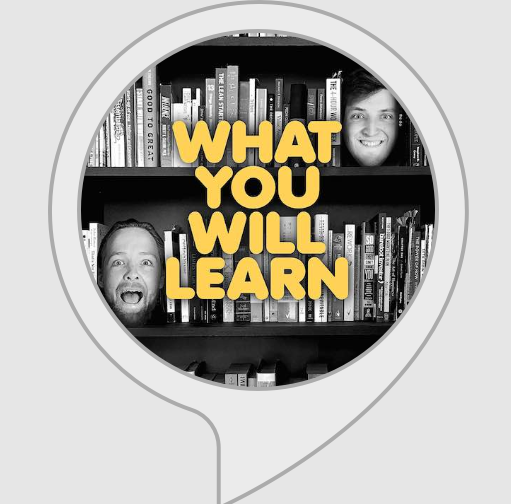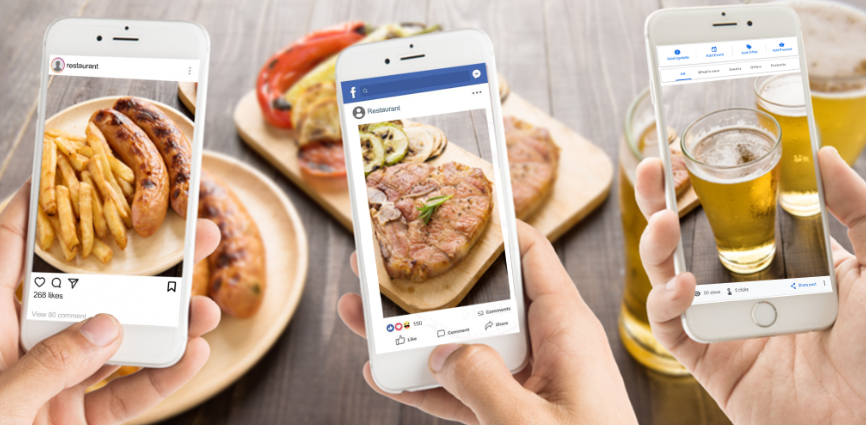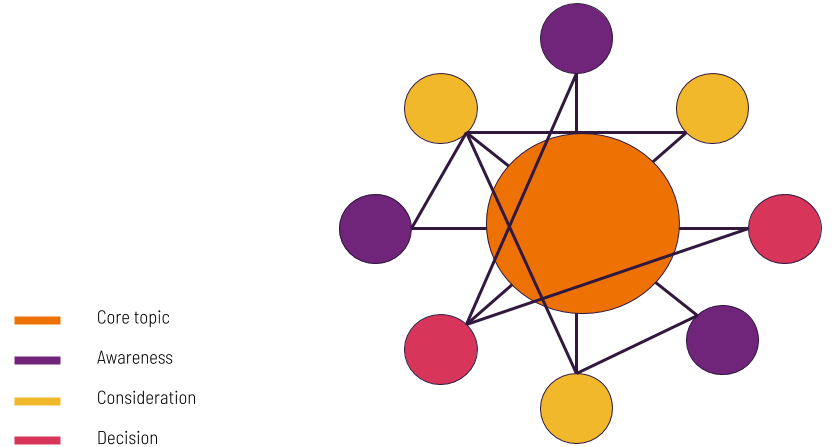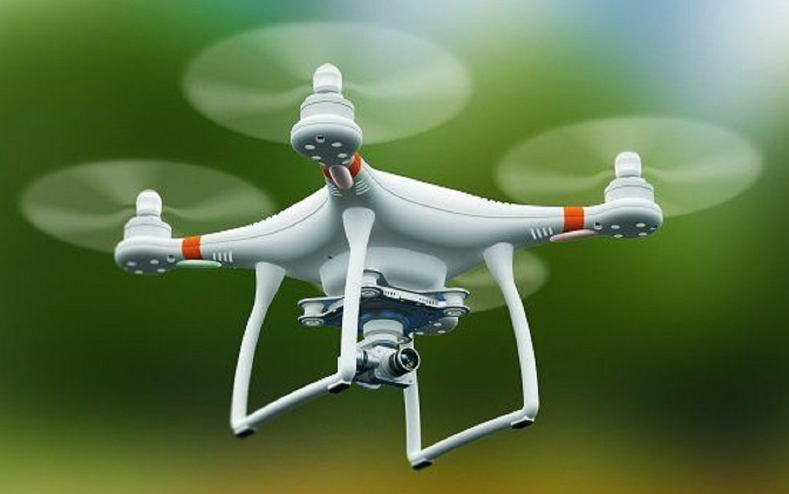Have you always wanted to start your own restaurant or café?
I know I definitely have and I’m exploring the world of food and business today with my special guest Mark Calabro
His mission is to get restaurants full again and bring back the social element of going out and dining.
How is he going to do this? Good question.
Table of Contents
ToggleMark founded Hungry Hungry, a platform that gives merchants the opportunity to engage directly with their customer and improve the dining experience.
Hungry Hungry is now used by 700 food and beverage merchants throughout the US and Australia.
In my conversation with Mark we cover a wide range of topics including how to create word of mouth buzz for your business, how to generate genuine reviews and why it’s important to keep in contact with your business network (and actually visit them face to face).
What makes the story of Hungry Hungry and Mark even more inspiring is that Mark has invested $2m of his own personal money to get it off the ground to save an industry that he loves so much.
You can tell how passionate Mark is about the food and beverage industry and it comes across in the interview that I’m sure every early-stage business owner will enjoy.
What you will learn in this episode

- How to create word of mouth buzz for your business
- Challenges facing the hospitality industry
- Upsell tactics (would you like fries with that method)
- Why convenience will always win
- How to start a business in an area you are passionate about
- Before you follow your dream of opening a hospitality business you need to understand the metrics
- Why feedback from customers is so critical for your business
- How to generate genuine reviews for your business
- How Mark has built the Hungry Hungry community
- How Mark tested his business assumptions, invested in technology early on, validated the product and market fit and is now ready to scale.
- Why it’s important to keep in contact with your network (and visit them face to face)
- The process of building the Hungry Hungry app
- Mark’s process of collecting primary data from customers and what he does with it
Resources mentioned

Airbnb: The Growth Story You Didn’t Know
9,999 in 10,000 Mobile Apps Will Fail
Entrepreneurs’ Organization (EO) is a global network of 12,000-plus influential business owners, with over 160 chapters in more than 50 countries.
Calm.com meditation app
Bulletproof Radio with Dave Asprey – Biohacking Podcast
Book Recommendations
The Five Dysfunctions of a Team by Patrick Lencioni
What business would you build on Mars?
I’m a little bit of a green thumb. In my spare time I’ve got a little patch of garden where I like to grow all different types of broccoli, I love my greens. So the seeds, I would say the seeds would have to come with me. And I would need to make sure someone brings some water because we don’t know how are we going to make them… where there’s a will, there’s a way. So I’m going to say broccoli seeds and the business would be around something with agriculture perhaps until such point in time that we need an app to order food. But we are going to need to actually cultivate food at the onset.
Get in touch with Mark
Transcript

Brendan Hill: Mark, welcome to the show.
Mark Calabro: Thank you.
Brendan Hill: What was your first exposure to the hospitality industry?
Mark Calabro: For me, it was probably a lot of university students. It was just hanging out, cafes and small eateries around campus. And I also worked part-time in a bar as well.
Brendan Hill: Right, right. And then you came up with your first business idea?
Mark Calabro: Yeah, Automate was, at the time there was nothing quite like it and it was at a time where GST was taking full effect and the hospitality industry was going throughout with the old cash register and we needed something a little bit more advanced. And because of our, we did a telecoms, engineering, multimedia, degree at university with software, it was something that was born out of a bit of a fun uni project, late nights and on weekends.
Brendan Hill: So the typical garage story. Two guys working out of the garage?
Mark Calabro: Yeah, it was literally in a garage in the eastern suburbs of Melbourne.
Brendan Hill: Wow!
Mark Calabro: And we spent many, many, many hours and countless amount of pizza boxes. Big cliche. But yeah, it was very much that.
Brendan Hill: So talk us through those early days. It’s just you and your co-founder. Many early stage businesses are going through the same thing, working hard, not sure where this journey is going to take them. What were the first steps? Did you go out and talk to customers? I mean you saw some trends happening with the GST.
Mark Calabro: Yeah, so for us, we felt we had something pretty special early on and that just came from getting out there and just getting in front of cafe, restaurant and bar owners. It was a real natural progression for us to just build the business brick by brick. But very quickly we saw the power of networking and referrals and it was largely driven by word of mouth.
Brendan Hill: Okay, and word of mouth. How do you stimulate word of mouth in the hospitality industry?
Mark Calabro: It’s quite a small industry in a sense that most people know others as well and you’ll find that if your first time in the industry and you’re about to open up a bar, chances are that you’ll go and visit some other bars in your city or other cities to get some ideas and you might even speak to the staff and/or the owner. So you might look at what coffee they’re using, what wines they have at the bar, and in the same sense, what technology they’re also using as well. And ask for that feedback.
Brendan Hill: And I know you’re very passionate about the hospitality industry as a whole, which brings us to your current project, HungryHungry. Can you give me a bit more of the background of where the hospitality industry was when you started Automate in 2003 and where we’re sitting today?
Mark Calabro: A lot has changed over the course of roughly 16 years. There are many, many challenges facing the industry at large. The industry sector now operates at a two percent net profit across the industry, which is, if you think about most people who would put down somewhere between $500,000 and a million, to look at a two percent return on that. It’s not exactly the most attractive investment.
But a lot of people follow their dreams and passions, which are to open up a patisserie or to open up a cafe. So it’s very emotionally driven and understanding the true metrics of these businesses, not everyone really understands that. And more recently there’s been a whole bunch of other challenges presented. One of those as we’ve seen with the delivery platforms.
Brendan Hill: Right, Uber Eats and the Last Mile sort of stuff?
Mark Calabro: Yeah. And look, by all means they actually came into this industry to solve a real problem. We’re all short for time now and the convenience of having some food brought directly to our desk, that’s great.
By the same token as well, we know that mums and dads are leading busier than ever lifestyles before, running between school sports with kids or work commitments, that convenience will win.
Brendan Hill: Definitely. From my personal experience in Sydney. I go to Kings cross, I go to Darlinghurst, I go to my local strip, Darlene street in Balmain, massive turnover, really high turnover. I go to a restaurant or a cafe, get to know the people and the next month they’re gone. So what can these guys do in terms of sales and marketing promotion? How can they not just survive but thrive?
Mark Calabro: So the reason why HungryHungry exists and our whole ethos is around satisfying what we know is two universal challenges that hospitality owners want and need. And that is to have people coming to their venue more often and to spend more money.
So we look at what the average check size is, or ticket size and our platform really tries to enhance the experience of dining whilst using beautiful photos that really make what they do sing. So what I mean by that is that we’ve developed a platform where you have a digital menu, it looks like an Instagram feed, so you’re actually fully engaged and immersed in what the offering is.
So we see typically an uplift of people spending about 25% more when they order through the HungryHungry platform. And that also might mean through the convenience of being able to order the extra coffee or maybe the dessert they wouldn’t have otherwise without having to flag down a staff member.
Brendan Hill: Reminds me of the story Airbnb. In the early days they had low quality images on all their listings. They hired a professional photographer and they got a similar uplift in bookings as well for somewhere between 25% and 50%. So do you actually go in and take the images for these companies?
Mark Calabro: We do, we were talking about this just this morning with someone and we unconsciously did that because we thought we have to have just beautiful imagery on the platform. We toyed with the idea of a do it yourself, but it’s kind of like when you would go to have a look at the photos of say Trip Advisor for accommodation, the photos often don’t put the room in the best light. So food is super important to make sure it just absolutely pops and it’s also very, very consistent as well.
Brendan Hill: And what are some other ways that businesses can get their customers to spend more money? I guess, cross sell, up sell, is that something that you’ve been exploring as well?
Mark Calabro: Definitely. So if you’ve been to the States, you will know that staff on the floor there are there to upsell and they’re great at that. Whereas in Australia we like to buy, but we don’t necessarily like to be sold. So we’ve got some very subtle ways of things like we have trending. So that might look like if you go into a restaurant you’d be greeted by a specials board. And these are things often really pushed by the owners or the chef out the back because they’re bigger ticket items or that might be a higher GP item that they’re trying to push. So we think, and we’ve always tried to mimic that, “Would you like fries with that?” That in a very cool, clean, sophisticated way that really suits the food and beverage industry in 2019.
Brendan Hill: And in terms of social media, obviously Instagram is massive for the hospitality industry. What else are you doing around that area? Or can you tell us a story of certain restaurants that you’ve seen maybe in Sydney or Melbourne that are really utilizing social media well?
Mark Calabro: Instagram has been a huge thing probably in the past 12 to 24 months where there’s been the rise of social bloggers and people wanting to post even to the extent of eating for free. And it’s become a little bit of a bugbear for a lot of people that I speak to, where they feel like they’re losing control of the messaging out there to the wider public. That’s one side of it. The other side of it is about people taking, or customers once they’ve dined, taking to social media to provide the feedback. So we see a world where the owner of the venue or the chef has a greater connect with the person who’s just dined. And we can actually encourage the feedback to happen more directly either during or straight after the fact. Any business operator wants to have that feedback from their customers, especially when you know they’ve actually dined in the venue, which is another problem with some platforms where you just don’t know if that was someone who was just scoping out the venue, who didn’t actually dine there and just trying to lower your score.
Brendan Hill: Could be a competitor, for example.
Mark Calabro: It often is.
Brendan Hill: Touching on reviews, obviously as you said, really important. Really important for any type of business when we have such easy access, Google, Yelp, all kinds of platforms where we can check the review, get that degree of social proof. What other ways can businesses generate these reviews and obviously concentrate on the authentic ones?
Mark Calabro: Yeah, so we have a plan in stage two of HungryHungry where we’re going to look to build out a community around the platform. So a question that we ask ourselves is, who’s the most trusted authority when you want to go and find your next pokey ball? So most of the public knows and certainly, industry does, that we have certain platforms where there’s just very low trust. It’s just salt to the masses. By the same token, everyone has their own personal requirements around food, be it medical or just be it through just spoiled for choice.
So we see HungryHungry in stage two as being your own personal food concierge, but one where you actually have a trusted authority so that if I feel like waffles this afternoon, where can I get the best waffles while I’m in Sydney? And we see people in the industry who work and live and breathe the industry who go in between their breaks and go and seek out to get the best waffles or the best, whatever it may be.
Brendan Hill: Interesting, you touch on that personal food concierge. How do you build in that level of personalization where someone’s going to pick up the HungryHungry App, they’re going to want to use it. It’s going to be accurate to their tastes and what they feel like at that moment. How do you build that level of personalization?
Mark Calabro: The key part for that is that HungryHungry is processing the actual transactions when you’re in or out of the venue. So first and foremost, HungryHungry is a business toolbox for food and beverage operators. So we actually process under a, it’s a white label platform. So a big thing for us is that we celebrate the branding and the theme and the style of that particular business on the actual platform.
So as I continue to order my meals from customer, also the business, the platform is learning about my spending habits, what I like to eat, whether I’m vegan, whether it’s a medical version of gluten free or whether it’s just a lifestyle choice. And that’s really important as well for the venue owners because no one wants to be sued or no one wants anyone to be going home in an ambulance. And it’s also presented a whole bunch of other challenges around that communication between ordering food and then the guys and girls out the back actually making it.
Brendan Hill: Yeah. And you touched on an important point about community building that I wanted to come back to. How do you build that community for HungryHungry, and how can early stage businesses listening, what tips would you give them?
Mark Calabro: Yeah, so the first thing when I think of community is, I think of the traditional sense of restaurants full again. Okay, so that’s something I’m very passionate about. The whole social element of going out and dining and sharing a moment with a colleague, a friend or a family.
When it comes to where the trajectory is with HungryHungry, so to date we service roughly 700 food and beverage merchants throughout Australia and a couple in the US as well now. And we’ve had over 300,000 Australians who have used HungryHungry at least once to order their food. So we have plans to further build out that community.
Brendan Hill: I read on your LinkedIn profile that personally investing $2 million into this current project, HungryHungry. So can you talk about bootstrapping your business in the early days versus getting external funding because obviously $2 million, it’s a large upfront investment?
Mark Calabro: My cofounder and I, we first of all wanted to really validate the actual product in the market fit. So it’s very easy I believe, as a startup or a business owner to make a lot of assumptions. And we’ve all seen a lot of businesses raise money and burn it very, very quickly. So I think there, and not putting a timeframe on this, because for some people it might be a month, for others it might be 10 years or more, but there needs to be a period of time in the earlier part where like any living, breathing organism, it just needs to grow out organically. And we were really specific about investing in the technology itself so that we had something that when we were ready to scale it, we had a really strong foundation upon which to do that from.
Brendan Hill: An area that businesses struggle with especially in the early stages is building an app. So obviously you guys have built an app, it’s getting traction in the marketplace. How did you build the app and what takeaways have you got from that whole experience?
Mark Calabro: So we started off by building for web at the start. So web has caught up a hell of a lot over the last couple of years in terms of functionality. We decided to, for a long while, to keep it wrapped up in an app for the ease of which, and we use the word frictionless a lot in our world. No one buys or does anything if they’re confused. So for us it was always about how seamless can we make the experience from a hungry customer who walks into a venue and has instant access to a digital menu with photos. We have started the journey off of also the app, but that’s part of our next frontier.
Brendan Hill: And how are you going to tackle developing the app?
Mark Calabro: So in the years gone by, we have had a number of apps that we’ve built for customers. And one of the things that we learned very early on is apps are very expensive to build. And there’s a crazy statistic out there where how many of them actually fail?
So if you think about the apps that we use every day, I personally use my Qantas App all the time. I’m always between flights, banking, transport. These are the apps that we use every single day. And in our world, what we also do every single day, most of us, and that is, we eat great food.
Mark Calabro: So we know for the success of HungryHungry we need to come up with something that’s truly unique and serves a piece in the market for both merchants. So that the owners of these businesses and also for their customers.
Brendan Hill: Awesome. And you talked about being a frictionless product before and that seamless sort of experience. How do you get customers? How do you get restaurants to sign up? And how do you make that a frictionless experience for their onboarding?
Mark Calabro: So for us, through our years of experience in this industry, we’re quite fortunate to have a lot of networks. So whenever I’m in any city in Australia, I always love going back to these people and just having a chat with them.
Brendan Hill: A face to face chat?
Mark Calabro: As often as I can.
Brendan Hill: Nice.
Mark Calabro: Absolutely, yeah. Last night I caught up with a restaurant guy here in Sydney. We would catch up for half an hour. We were there for two hours just talking about the state of the industry.
Brendan Hill: Wow!
Mark Calabro: Then I was off to see who I just met last night, the owner of Almond Bar in Darlinghurst who’d been quite vocal about how they see how sick the industry is at the moment and what they would like to see happen next.
So for me personally, I’ve always put a high value in speaking to people at the frontline of the industry.
Brendan Hill: Oh, that’s interesting. And for people that are currently working in a job that they may not particularly like, they have passions in areas like food or hospitality like yourself. You’ve done a great job of combining your love of food with your skills in tech, marketing and sales. How can these people who are looking to start a business in an area that they’re passionate about, what steps can they take to go from step A to step B?
Mark Calabro: Step A, I believe, is talk to as many people as you can, first. Do not rush jumping into this industry or really any industry. In saying that, do your homework. I’ve seen way too many times now where people will have a budget for a typical cafe, perhaps anywhere between four and $800,000 and budgets get blown. And then you open the doors and you’re already under stress and your numbers perhaps aren’t there. So there was an old rule of thumb in this industry where you would need to have cashflow for about six months to then move on from that.
The other problem is that because there’s not many barriers to entry, we just see so many food places that are opening, and I’ve been saying this for many, many years, that the rate of which rent venues are opening can’t continue to rise. But sure enough they are. But on the other side, people aren’t cooking at home as much anymore and we’re eating out.
Brendan Hill: Yeah, I think it’s refreshing that you’re mentioning a lot of face to face contact and proving the assumptions, talking to people, having those higher fidelity conversations in person. I think it’s definitely something that’s missing in the business world today.
Mark Calabro: I believe that certain things you can shortcut and certain things you shouldn’t. And one of those is designing a world around not just your assumptions, but speaking to people that live and breath the struggles of operating in a business. So for us, it just takes time, you can’t shortcut.
Brendan Hill: What do you do with the data when you’re talking to someone do you collate that into a big pool? Do you then use that to prove out certain assumptions? Can you talk us through that process?
Mark Calabro: Sure. The first thing that I do is I bring it back to the team. And the obvious might be sometimes product, but it’s also the guys in marketing. It’s everyone in the business. For me, it’s really important that they understand what actually happens. So we create technology. Everyone’s very proud of that. Everyone loves the world in which we’ve created in terms of we are solving problems for the industry. But what’s super critical for me anyway is that my team know exactly the conversations that I’m having out there in the world. And I believe that makes us challenge the decision making around what’s really, really important for us to incorporate, product and roadmap perhaps, or all the way down to the guys out there that are account managers, BDMs who are also having their own conversations day to day.
Brendan Hill: Amazing process. And what has you most excited about business right now?
Mark Calabro: What has me most excited about business specifically in the food and beverage space is people’s willingness to fight. And I see that in their eyes and I feel it when I’m having these conversations that they want to see a better hospitality industry. We had arguably, the best years over through the 2000s were Melbourne and also Sydney were really growing up. And two of the best food cities in the world. Whenever I travel abroad and you talk about Melbourne, which is my home city, and perhaps a bit of a bias, Melbourne is instantly put up there at the very top in terms of our food offering. And I think it’s a very important part of society. It’s the largest incubator of talent in Australia. It employs, has a huge workforce, not just in the venues, but also in the supply chain behind it as well. So I think it’s a very, very critical industry for us to really protect and support.
Brendan Hill: Yeah, for sure. It’s good that you’re at the frontline creating solutions for that as well. And what is the most worthwhile business investment you’ve made, it could be a course, some kind of tool or campaign that you’ve done in the past?
Mark Calabro: Two years ago I joined up with EO, Entrepreneurs’ Organization. And that for me was, so it’s a membership, you get placed in a forum and you’re with other entrepreneurs. And that was two years ago and it is a significant investment, but it’s by far outshines any other investment that I’ve made on myself or my business.
Brendan Hill: And you’re meeting all kinds of mentors and people in this group?
Mark Calabro: Correct. We have a business coach who we’ve been using now for 10 months. And he’s been instrumental also in not just the business, but more in terms of your mindset and probably on my own personal journey, identifying what my strengths are and really playing to those strengths.
Brendan Hill: So business coaching is interesting. A lot of people might have the wrong idea about business coaching. Is this the first business coach that you guys have had?
Mark Calabro: For me personally it is, and I think I struck gold with it, the coach that we have, I speak to a lot of people that have used business coaches and don’t have great positive things to say about them. But everyone, I was told about this particular business coach and everyone that we’ve passed him on to just he’s quite unique.
Brendan Hill: Sounds like an amazing resource, Mark. What about a cheaper sort of tool, maybe under $100 or less that you’ve made in the last 12 months that’s had a big impact on your life?
Mark Calabro: For me, I do like to meditate and I started doing transcendental meditation going back about four years ago, but last year I bought Calm.
Brendan Hill: calm.com?
Mark Calabro: Yeah, the app is fantastic. Depending on how I’m feeling, I’ll use that or 1 Giant Mind, which is another great meditation app.
Brendan Hill: So what’s 1 Giant Mind? I haven’t heard of that one.
Mark Calabro: It’s more based on transcendental meditation, which is a particular style. So it’s a personal thing.
Brendan Hill: Yeah, calm.dom is interesting as well. They have a similar story to HungryHungry, they started with the web app to prove out their assumptions first and then they make the big investment obviously in the app when they started to get that degree of product market fit and scale offering.
Mark Calabro: It’s a good strategy.
Brendan Hill: And in terms of reading market, are you a big reader when it comes to learning new things in business?
Mark Calabro: I was, and I’m really, really disappointed to say that these days more probably since the start of the year, I am reading less. I am listening to more podcasts-
Brendan Hill: Yeah, I know.
Mark Calabro: Which fills in the time in the morning commute. I do like to get into a book, particularly when I’m on a holiday and I’m kind of mixing that up between business and maybe non-business top books.
Brendan Hill: Any books or podcasts that you can recommend?
Mark Calabro: Last year I read The Five Dysfunctions of Leadership by Patrick Lencioni and that for me, resonated really strongly. And there were some really good insights in how people within an organization or a team can better function.
Then podcasts, one of my favorites, I love food, I love health and is around a biohacker, Dave Asprey. I often like to listen to his podcasts just so as my world is not always entirely about business and I can go back over into that food bio space, which I find very interesting.
Brendan Hill: Awesome. I’ll put all of Mark’s resources in the show notes that you can find at metigy.com/podcast. So Mark, really wanted to thank you for coming in, sharing a lot of knowledge for our audience today.
We do have two abstract questions that we like to finish on. So the first question is, if you could have a billboard, it could be anywhere in the world, any location, where would you put it and what would it say?
Mark Calabro: A billboard anywhere in the world? I would go South of France. It’s one of my favorite places to visit because of the food. And I would say, it would have to be in French?
Brendan Hill: English and French.
Mark Calabro: My French is probably a little bit rusty. It would say HungryHungry in Chinese. Don’t ask me to say that. And I say that because HungryHungry was born out of, we got a lot of takeaway Chinese food and we all look at each other at work, “Okay, you hungry? Yeah, I’m hungry, hungry.” So, and a shout out to April, who’s our CFO who always is saying she’s hungry, hungry too. So yes, something in South of France, HungryHungry in another language.
Brendan Hill: Very interesting billboard.
And the final question, Mark, are you ready for launch?
Mark Calabro: Yes.
Brendan Hill: So you’re on the first flight to Mars with Elon Musk and the first settlers aboard the SpaceX Starship Rocket. What business do you start when you land on Mars and how would you promote it to the new Martians?
Mark Calabro: I’m a little bit of a green thumb. In my spare time I’ve got a little patch of garden where I like to grow all different types of broccoli, I love my greens. So the seeds, I would say the seeds would have to come with me. And I would need to make sure someone brings some water because we don’t know how are we going to make them… where there’s a will, there’s a way. So I’m going to say broccoli seeds and the business would be around something with agriculture perhaps until such point in time that we need an app to order food. But going to need to actually cultivate food at the onset.
Brendan Hill: So that could be farm direct to table.
Mark Calabro: Yeah. I like it.
Brendan Hill: We could order with the HungryHungry App as well.
Mark Calabro: That will be phase two I think.
Brendan Hill: Phase two, great answer, Mark. And once again, thanks for everything that you’ve contributed today. Really appreciate the time you’ve taken out of your busy schedule. Is there anything that you’d like to say before we wrap up and how can people get in touch?
Mark Calabro: Thank you first of all, and you can visit our website, hungryhungry.com. Our social media is also about to be launched very soon. And I hope to come back to Sydney very soon and see more people in the actual venues and cities like Sydney and Melbourne thriving again.
Brendan Hill: That’s an awesome mission that you’re undertaking. And you can view all of Mark’s show notes and all the resources that Mark mentioned today at metigy.com/podcast. Once again, Mark, it’s been great. Thanks for coming in.









